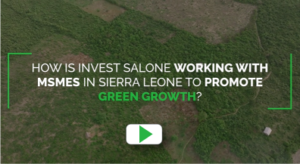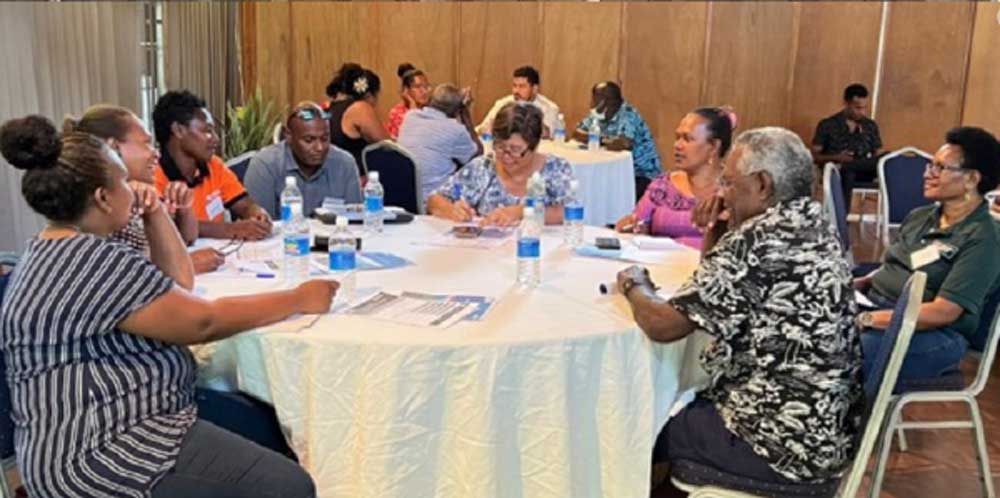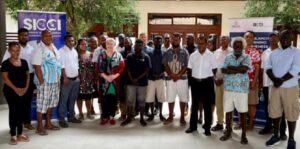World Micro, Small, and Medium Enterprises Day
Empowering the Backbone of Economic Growth: Micro, Small, and Medium Enterprises
- Overview
- Empowering Local MSMEs for Sustainable Livelihoods: Sierra Leone
- Empowering Local MSMEs for Sustainable Livelihoods: Solomon Islands
- REPORT | Advocating for Gender Equity in MSMEs
- CASE STUDY | Driving Inclusive Recovery: How MSMEs in the Philippines Embrace the Digital Economy
- Driving Transformation: Trade, Competitiveness, and Good Governance as Drivers of MSME-led Economic Growth: Cambodia, El Salvador, Sierra Leone, Uganda
World Micro, Small, and Medium Enterprises Day Overview
Investing in Micro, Small, and Medium Enterprises (MSMEs) is crucial for sustainable development. As engines of economic growth, job creation, and poverty reduction, MSMEs empower marginalized communities, drive inclusive development, and foster innovation and resilience. They contribute to sustainable supply chains, social stability, and local development, while playing a significant role in global trade and economic integration. Supporting and nurturing MSMEs is an investment in building equitable and sustainable economies that benefit individuals, communities, and the planet. At Cadmus, we work with clients around the globe to enable positive, transformative, and long-lasting economic change.
Our team of leading experts helps clients across the globe improve people’s lives, spur the economic well-being of communities, and strengthen public and private institutions. Our global impact spans across Africa, Asia and the Pacific, Europe, Latin America and the Caribbean, and the Middle East.
Discover how we’re supporting MSMEs around the world.
Empowering Local MSMEs for Sustainable Livelihoods: Sierra Leone
Invest Salone, a six-year program funded by the UK Foreign, Commonwealth & Development Office (FCDO) and implemented by Nathan, a Cadmus Company, aims to boost Sierra Leone’s economy through international trade. By supporting local MSMEs and other investments in agriculture, tourism, fisheries, and manufacturing, the program aims to increase the incomes of 370,000 people by 2025. Launched in February 2023, the Made in Salone series highlights market development, socio-economic transformation, and job creation in key industries across Sierra Leone.
Learn more about Invest Salone: investsalone.com
Empowering Local MSMEs for Sustainable Livelihoods: Solomon Islands
The Solomon Islands Strengthening Competitiveness, Agriculture, Livelihoods and Environment (SI-SCALE), as part of the USAID-funded U.S. Support for Economic Growth in Asia project, seeks to enhance the economic competitiveness and inclusiveness of the Solomon Islands’ agribusiness and forestry sectors. From facilitating trainings with local MSMEs on export and trading skills, to developing export strategies, SI-SCALE emphasizes the establishment of sound trade and investment systems as well as helps improve governance. Learn more about our work in SI-SCALE:
REPORT | Advocating for Gender Equity in MSMEs
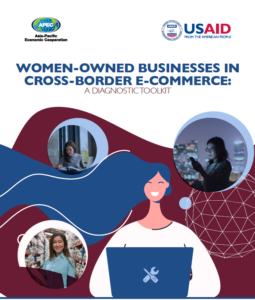 E-commerce allows women to reach a larger customer base and operate businesses from home, where they often bear a disproportionate burden of caregiving responsibilities. Due to these reasons, women-owned businesses require specific support from governments and the private sector to access e-commerce opportunities domestically and internationally. To foster an inclusive recovery post-COVID-19 and promote gender-balanced participation in the digital economy, the USAID-funded U.S.-SEGA project collaborated with various US government agencies and policymakers in the Asia Pacific Economic Cooperation (APEC) region since 2020 to establish a favorable policy environment for women-owned small and medium-sized businesses engaged in cross-border e-commerce. Download the report.
E-commerce allows women to reach a larger customer base and operate businesses from home, where they often bear a disproportionate burden of caregiving responsibilities. Due to these reasons, women-owned businesses require specific support from governments and the private sector to access e-commerce opportunities domestically and internationally. To foster an inclusive recovery post-COVID-19 and promote gender-balanced participation in the digital economy, the USAID-funded U.S.-SEGA project collaborated with various US government agencies and policymakers in the Asia Pacific Economic Cooperation (APEC) region since 2020 to establish a favorable policy environment for women-owned small and medium-sized businesses engaged in cross-border e-commerce. Download the report.
CASE STUDY | Driving Inclusive Recovery: How MSMEs in the Philippines Embrace the Digital Economy
In the Philippines, MSMEs make up 99.5% of the 1.08 million business enterprises, generating 65% of the country’s total employment. When the COVID-19 pandemic hit, these MSMEs had to adapt quickly to meet changing market demands. The crisis accelerated the need for digital transformation, with MSMEs embracing e-commerce, online payment systems, digital marketing, automation, and remote work. Access to market insights, data analytics, online learning, and alternative financing became crucial for MSMEs to compete in the digital age and rebuild their resilience.
The USAID Better Access and Connectivity (BEACON) Project is helping MSMEs, especially those in geographically isolated areas, connect to the internet through sustainable community networks. BEACON partners with Filipino government agencies, satellite companies, and local stakeholders to provide reliable and affordable internet access. MSMEs can even become resellers of internet connection, gaining additional income. Recently, BEACON, in collaboration with Kacific Broadband Satellites and Stellarsat Solutions, deployed satellite terminals in three communities managed by KM7 Farmers Producers Cooperative (KFPC) in Butuan City, benefiting over 1,800 residents. KFPC, along with the Caraga ICT Council and Caraga State University, leads the community network initiatives, providing reliable and affordable internet access. Kacific and its local partner handle internet bandwidth, equipment, and business tools, while BEACON provides support and technical assistance.
Learn more about BEACON.
Driving Transformation: Trade, Competitiveness, and Good Governance as Drivers of MSME-led Economic Growth
Cambodia:
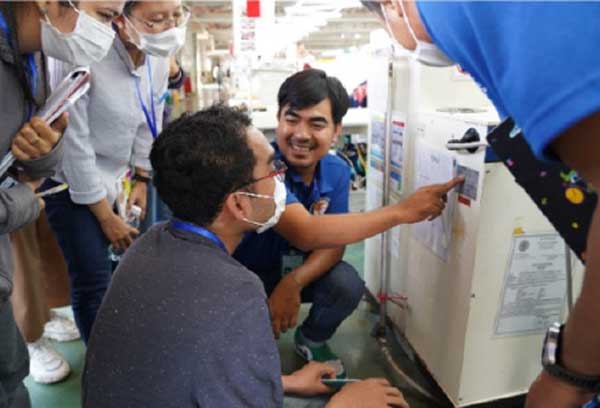 The garment industry is a key pillar of the Cambodian economy. In 2019, before COVID-19, the industry employed 800,000 workers (mostly women) and accounted for 65% of total export earnings and 15% of Cambodian GDP. The COVID-19 pandemic severely affected the sector. In 2020, the garment industry experienced negative growth of 6.7%, leading to the closure of approximately 110 garment factories and loss of employment for more than 55,000 workers. Read more.
The garment industry is a key pillar of the Cambodian economy. In 2019, before COVID-19, the industry employed 800,000 workers (mostly women) and accounted for 65% of total export earnings and 15% of Cambodian GDP. The COVID-19 pandemic severely affected the sector. In 2020, the garment industry experienced negative growth of 6.7%, leading to the closure of approximately 110 garment factories and loss of employment for more than 55,000 workers. Read more.
El Salvador:
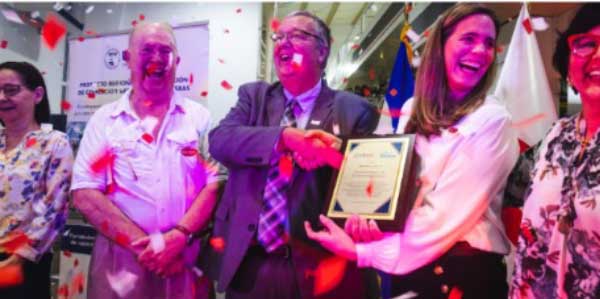 BEMISAL, a leading environmentally friendly packaging company, successfully completed a technical assistance program under the USAID Central America Regional Trade Facilitation and Border Management Program (TFB). In collaboration with the Corporation of Exporters (COEXPORT), the TFB program aims to strengthen the Salvadoran private sector by providing companies with technical assistance to achieve Trusted Operator (TO) certification through the General Customs Directorate (DGA) of El Salvador. Read more.
BEMISAL, a leading environmentally friendly packaging company, successfully completed a technical assistance program under the USAID Central America Regional Trade Facilitation and Border Management Program (TFB). In collaboration with the Corporation of Exporters (COEXPORT), the TFB program aims to strengthen the Salvadoran private sector by providing companies with technical assistance to achieve Trusted Operator (TO) certification through the General Customs Directorate (DGA) of El Salvador. Read more.
Sierra Leone:
 Following initial assessments conducted earlier this summer, small and medium sized enterprises (SMEs), who will be receiving support under Invest Salone’s technical assistance facility (TAF), gathered in Freetown on 8 December 2022 for an orientation session to learn more about the process and its benefits. Read more.
Following initial assessments conducted earlier this summer, small and medium sized enterprises (SMEs), who will be receiving support under Invest Salone’s technical assistance facility (TAF), gathered in Freetown on 8 December 2022 for an orientation session to learn more about the process and its benefits. Read more.More featured content on Sierra Leone:
- Bootcamp helps 12 Sierra Leonean entrepreneurs become pitch-perfect for impact investment deal summit
- Invest Salone Launched Toolkit to Accelerate Development of Investment-Ready Firms in Sierra Leone Start-ups, investors, business development service providers and other stakeholders from Sierra Leone’s entrepreneurial ecosystem attended an investment-focused workshop in Freetown on 14 March 2023 to launch a new toolkit designed to accelerate the development of investment-ready businesses in Sierra Leone. Download toolkit
Uganda: Innovations and Formalization in the Informal Sector
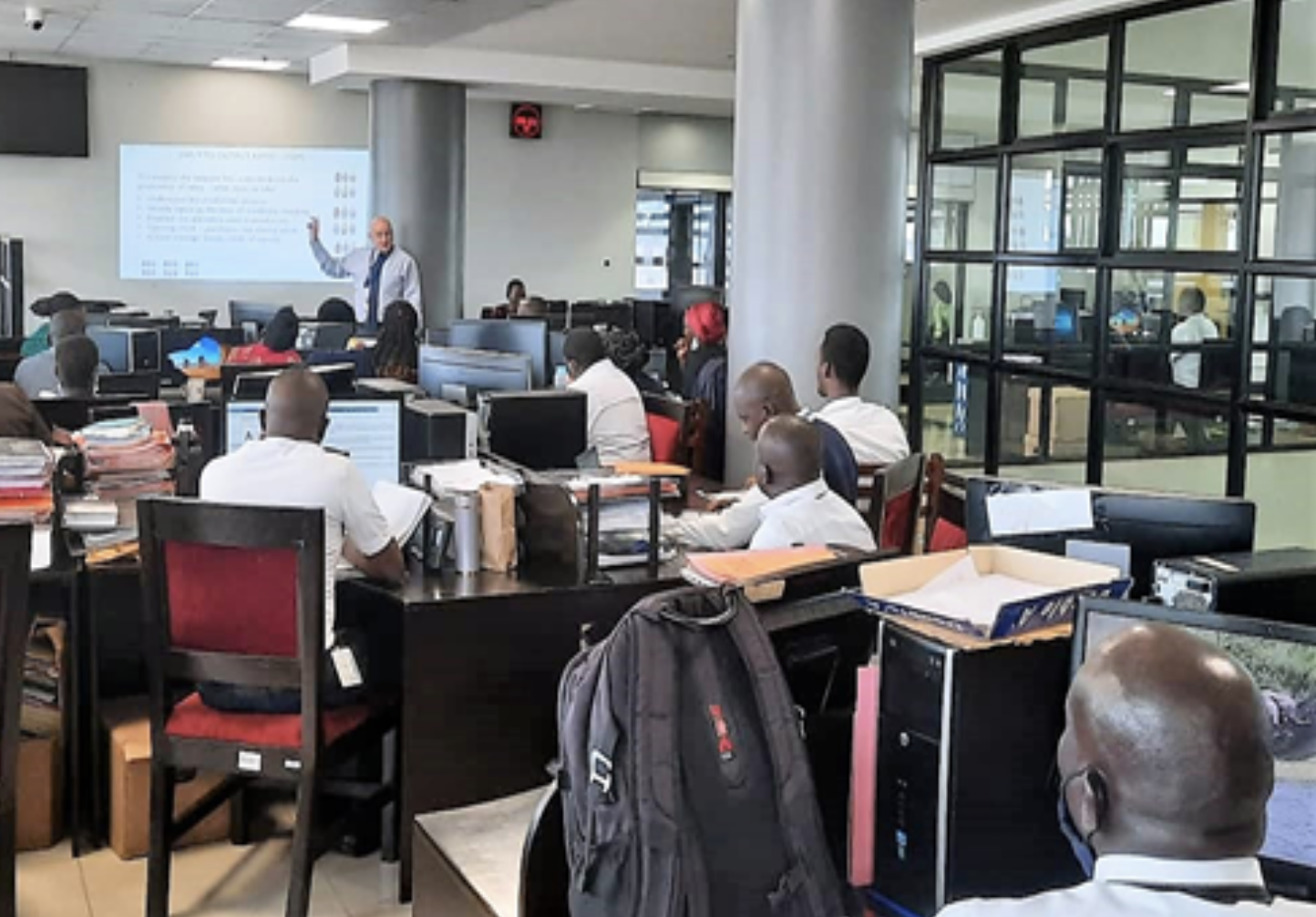 Uganda’s informal sector, predominantly composed of Micro, Small, and Medium Enterprises (MSMEs), represents a significant portion of the economy. With estimates ranging from 34% to over 50% of the GDP, the informal sector accounts for 75% of total employment, particularly attracting working women and young individuals. Recognizing the importance of formalization, the USAID Uganda Domestic Revenue Mobilization for Development (DRM4D) activity provided procedural and technical support to over 500 enterprises across the country. This includes assisting with registration, quality certification, tax compliance, and capacity-building initiatives. Additionally, DRM4D has facilitated the development and implementation of innovative solutions, such as a street parking application by Fueless, which has transformed revenue collection in urban areas. The successful pilot has led to the expansion of this application to more cities, with a commitment to implement it in over half of Uganda’s cities in the coming financial year. Learn more about USAID Uganda DRM4D.
Uganda’s informal sector, predominantly composed of Micro, Small, and Medium Enterprises (MSMEs), represents a significant portion of the economy. With estimates ranging from 34% to over 50% of the GDP, the informal sector accounts for 75% of total employment, particularly attracting working women and young individuals. Recognizing the importance of formalization, the USAID Uganda Domestic Revenue Mobilization for Development (DRM4D) activity provided procedural and technical support to over 500 enterprises across the country. This includes assisting with registration, quality certification, tax compliance, and capacity-building initiatives. Additionally, DRM4D has facilitated the development and implementation of innovative solutions, such as a street parking application by Fueless, which has transformed revenue collection in urban areas. The successful pilot has led to the expansion of this application to more cities, with a commitment to implement it in over half of Uganda’s cities in the coming financial year. Learn more about USAID Uganda DRM4D.

